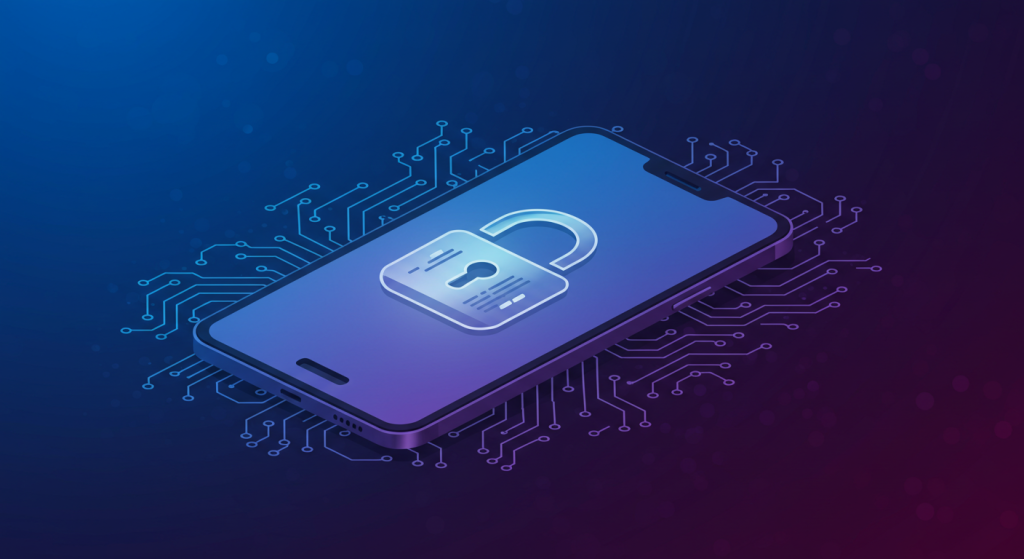advertising
Nowadays, cell phone security has become an essential priority for users who want to protect their personal and professional information. With the increase in digital threats, such as data theft, intrusions and malware, it is essential to use applications that strengthen device protection.
Fortunately, there are several robust solutions available to install that provide users with security and peace of mind. In this article, we'll explore the best security apps and how they can shield your phone from virtual attacks.
advertising
How to protect your phone with advanced tools
Ensuring the security of your device requires the use of tools that go beyond the basic settings offered by operating systems. Advanced applications can offer real-time protection, vulnerability analysis and malware prevention.
One example is antivirus for mobile devices. They detect and neutralize threats before they cause damage. Apps such as Avast Mobile Security and McAfee offer features such as blocking suspicious calls and automatic scans. For those looking for additional protection, it's worth installing tools such as VPNs, which guarantee security when surfing public networks. NordVPN, for example, encrypts data, protecting sensitive information.
Password managers are also essential. Applications such as LastPass or Dashlane create strong and unique passwords, preventing hackers from accessing your accounts. These tools are simple to use and essential for those who prioritize security.
Essential Applications to Avoid Cyber Threats
With the increase in cyber threats, it's crucial to know the apps that help protect your cell phone against possible attacks. Some of these apps offer features aimed at total security, including protection against phishing and identity theft.
Among the best options is Norton Mobile Security. It identifies dangerous applications even before they are installed, blocking them automatically. Another solution is Malwarebytes, which detects anomalous behavior on your phone and guarantees immediate protection.
Two-step authentication apps, such as Google Authenticator and Authy, are also highly recommended. They offer an additional layer of security for your accounts, making unauthorized access more difficult. Installing these apps is simple and they work in conjunction with popular services such as email and social networks.
Finally, it's worth mentioning tracking blockers such as DuckDuckGo Privacy Browser. These applications prevent websites from collecting your data without your consent, an increasingly important protection in the digital world.

Digital Security: Apps to Shield Your Phone
Digital security is increasingly linked to privacy and the protection of personal data. That's why investing in applications that offer these guarantees is essential.
One of the starting points is to install apps that perform automatic backups, such as Google Drive or Dropbox. They protect your information from data loss in the event of theft or device failure. Apps like Signal and Telegram are also suitable for secure communication, offering end-to-end encryption.
The security of financial transactions is another aspect to consider. Applications such as PayPal and Google Pay have robust protection systems that prevent fraud. In addition, for those using Android devices, Play Protect is an integrated tool that checks apps before they are installed.
Finally, consider apps that offer remote data wiping. Find My iPhone, for iOS users, and Find My Device, for Android, allow you to erase information in cases of theft or loss, minimizing the risk of data leakage.
Tips and Apps to Strengthen Your Device's Protection
Adopting security practices is just as important as installing reliable applications. A good start is to ensure that your operating system is always up to date, as updates correct known security flaws.
Also, avoid installing applications from unknown sources. The Google Play Store and the Apple App Store are the safest options for downloads. Checking app permissions is also crucial; many ask for unnecessary access to personal data.
Among the most useful tips is the use of apps like AppLock. It creates protection barriers for individual applications, such as the gallery or messages, requiring passwords or biometric authentication. Other solutions include family location apps, such as Life360, which track devices and help protect family members.
Finally, apps like Cerberus or Prey Antifurto are indispensable for tracking and recovering your phone in the event of loss. With features such as real-time location and remote camera activation, they provide the user with extra security.
Mobile Security Technology: Key Applications
Mobile security technology has evolved significantly in recent years, offering sophisticated solutions to protect users against growing threats.
Child safety apps, such as Kaspersky Safe Kids, are great for parents who want to monitor and protect their children's devices. These apps offer parental controls, content filtering and location tracking.
Other innovations include Wi-Fi monitoring applications such as Fing. These apps identify insecure networks and alert the user to suspicious connections, preventing hacker attacks.
Biometrics are also a valuable security tool. Apps like Dashlane and 1Password use fingerprint authentication or facial recognition to ensure that only the owner of the device has access to the information stored.
Finally, installing applications that block malicious ads, such as AdGuard, helps prevent accidental clicks on dangerous links. These apps not only ensure greater security, but also improve the browsing experience.
Mobile Security Solutions: The Best Apps
With a variety of solutions on the market, it's essential to choose applications that meet your specific needs. Bitdefender Mobile Security, for example, combines advanced protection with lightweight features, ideal for devices with limited storage space.
For those looking to protect their banking information, applications such as RoboForm or True Key are indispensable. They store data securely and make it easy to fill in automatically when shopping online.
Security should also extend to social networks. Applications such as SocialShield help monitor suspicious activity on accounts, alerting the user to possible intrusions. In addition, apps such as TunnelBear guarantee anonymous and secure browsing when accessing public Wi-Fi networks.
Regardless of the choice, it is essential to install applications from reliable sources and review ratings to ensure that they really do offer efficient protection. Digital security is an indispensable investment for our connected daily lives.
FAQ
Which applications are best for basic protection?
Antiviruses such as Avast Mobile Security and password managers such as LastPass are a good place to start.
Are paid apps better than free ones?
Paid apps generally offer more features and technical support, but many free ones, such as Google Authenticator, are effective.
Can I trust apps from alternative stores?
Not recommended. Installing apps from unofficial sources increases the risk of exposure to malware and intrusions.
Is it worth using more than one security application?
Yes, as long as the apps don't conflict. Combining an antivirus with a password manager, for example, is good practice.
Do security apps consume a lot of battery?
The best apps are optimized to minimize the impact on the battery, but it's important to monitor the phone's performance.



